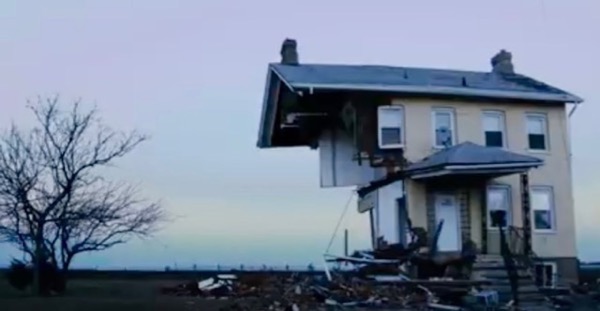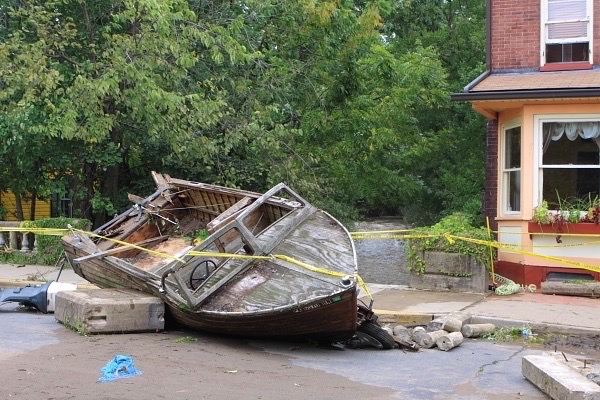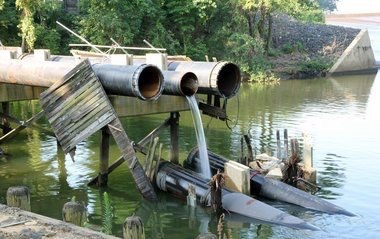DEP Says It’s Not Their Job To Say NO
DEP Rejects Regulation, Relies Exclusively On Risk Disclosure & Private Property Deed
The Murphy DEP just stated that the equivalent of a termite inspection is adequate to address climate impacts and risks.
This is not a joke or hyperbole.
Frankly, after just reading today’s NJ Spotlight story on the upcoming Murphy DEP Climate regulations that have been dubbed PACT, I’m beside myself and so angry I can’t think straight.
We predicted this was coming over 3 months ago, based on DEP’s release of their climate science report, see:
- Murphy DEP Issues Report That Whitewashes Gov. Christie’s 8 Year Long Record Of Climate Denial And Rollbacks
- NJ Gov. Murphy’s “Climate Resilience Strategy” Perpetuates The Status Quo, Misses Huge Opportunities To Make Real Change, And Undermines DEP Power
But while I knew this was coming, I am astonished that DEP would openly admit to such a gross and irresponsible abdication of their authority and responsibility to protect people, public health, and the environment from the accelerating climate catastrophe.
Former corporate lawyer and current Murphy DEP Deputy Commissioner Shawn LaTourette (who should have been fired after the fiasco and lies about the Union County Covanta incinerator PFAS experiment) openly admitted the DEP’s collapse:
Although developers and builders fear the new rules will tighten limits on where they can build in coastal and inland areas, the regulations are unlikely to do that, LaTourette said in an interview with NJ Spotlight News. …
“We’re not at a point, nor do we think it’s our role, to tell people: ‘Don’t build here, you shouldn’t build there, you can’t do that,’” LaTourette said. “It is about making folks assess their risk and recognize the risk they are taking on. We are not saying: ‘You cannot build in a future flood-risk area.’ We’re saying that in a future flood-risk area, you need to at least do what you do now in an existing flood-risk area, which is: assess the risk, and notice that risk. It will forever live in the deed record of that property.”
What?
It’s not DEP’s role to say “you can’t do that”?
It’s not DEP’s role to say “Don’t build here, you shouldn’t build there”?
Mr. LaTourette is a lawyer, which makes his open admission even more astonishing.
Has he not read the NJ Freshwater Wetlands Protection Act? The Flood Hazard Area Control Act? The Coastal Area Facilities Review Act? The Water Pollution Control Act? The Highlands Act?
Each one of these laws not only provides legislative authority to DEP to SAY NO and regulate development, they require DEP to do so.
Mr. LaTourette’s statement contradicts 40 years of NJ environmental law, regulation, and policy.
It’s an astonishing abdication. Absolutely Astonishing.
But the fact that it applies to climate impacts makes it even worse.
Instead of relying on traditional DEP regulation, LaTourette takes a page out of the radical libertarian Cato Institution play book and says the Murphy DEP will rely on private market forces.
Specifically, DEP will rely on disclosure of risks via a “climate impact statement” and deed recording, basically a builder and buyer beware program.
This is a radical policy that goes beyond the failed right wing corporate policy of voluntary compliance, because at least there were underlying standards that the private sector voluntarily complied with. DEP retained authority to look behind the voluntary compliance to ascertain true compliance status.
The new radical disclosure – property deed approach relies exclusively on market mechanisms and abandons DEP’s regulatory role entirely.
This can not stand.
More to follow after I get a chance to calm down and collect my thoughts.




Pingback: WolfeNotes.com » Environmental Leader Applauds Murphy DEP Retreat From Climate Regulations
Pingback: WolfeNotes.com » After Announcing Retreat On Climate Regulations, The Murphy DEP Is In Damage Control Mode And Trying To Change The Subject
Pingback: WolfeNotes.com » In Walking Back Absurd Climate Remarks, DEP Goes From The Frying Pan To The Fire
Pingback: WolfeNotes.com » Disclosure Of Flood Risks Is Not A Solution, It’s A Diversion
Pingback: WolfeNotes.com » Whitewashing The Dismantling Of NJ’s Toxic Chemical Laws